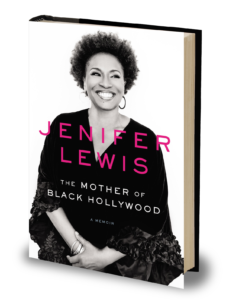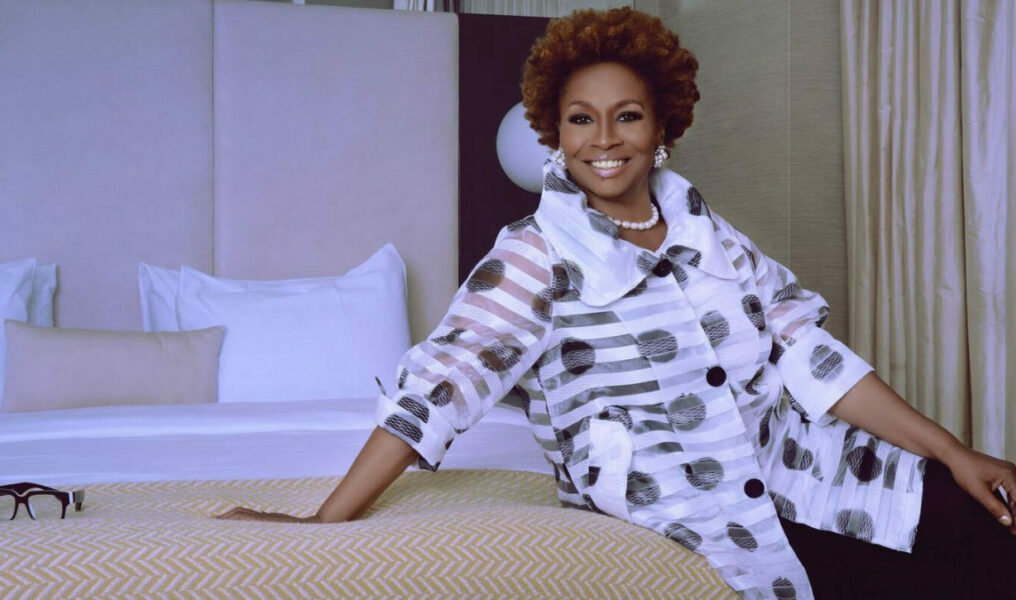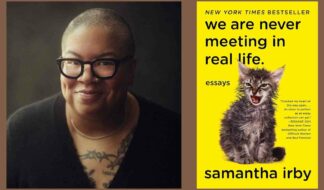Jenifer Lewis to Visit Detroit: Tackles Stigma, Mental Illness in New Memoir
If actress Jenifer Lewis ignites a sense of motherly affection from viewers, it's certainly not by accident. After all, her portrayal of a mother, aunt or general matriarch in more than a dozen roles in both TV and film has earned her the title "The Mother of Black Hollywood," and that's the title of her brand-new memoir, too. Also an ally for the LGBTQ community, Lewis made history when she portrayed the first black lesbian on TV in the mid-'90s.
Currently, the former Broadway actress is the head of the Johnson family on ABC's "Black-ish" as grandmother Ruby and is in the process of a book tour to promote her new memoir.
In it, she said she has held "nothing back," revealing all of her life's struggles in detail and her daily fight with bipolar disorder.
Lewis' next local stop on tour will be on Saturday, May 12 at the Charles H. Wright Museum of African American History in Detroit, where she will talk both about the book and sign copies for all attendees. Proceeds from this event will support the Community Health Awareness Group, an organization that is dedicated to improving the "quality of life of Detroit's African-American community by addressing current health issues" and reducing the transmission of HIV by offering both information and support services for those with the disease.
 Between The Lines caught up with Lewis during her touring schedule to talk about her personal ties to HIV, her work as an LGBTQ ally, how she has fought bipolar disorder since her diagnoses and what she recommends others do who have been diagnosed with life-changing illnesses.
Between The Lines caught up with Lewis during her touring schedule to talk about her personal ties to HIV, her work as an LGBTQ ally, how she has fought bipolar disorder since her diagnoses and what she recommends others do who have been diagnosed with life-changing illnesses.
The fact that you're doing your upcoming Detroit event to benefit CHAG is not a mistake, you have had personal ties to people diagnosed with HIV and AIDS, right?
Oh, absolutely. We, my generation, we lived through what we called a silent war that was never declared. So many of our friends passed away from HIV and AIDS and you know, in New York we felt so lost because the U.S. government wasn't doing anything about it, so we took it upon ourselves to do fundraisers to help find a cure. We created one back in New York called Divas for Dollars and we would go down to all the gay clubs and sing a song by a hit disco singer and then we would pass the hat and go to the next gay club. That was Saturday night for quite some time.
Speaking of the LGBTQ community, you portrayed the first African-American lesbian character on TV in the mid-'90s. Was that a challenge for you?
Yes, on a show called "Courthouse" I played a judge who was a lesbian and something very funny happened in that. I'm straight — or whatever that means — I mean, there's a chapter in the book called "Big Diva" (laughs)! But, here's the thing, I wasn't as uncomfortable kissing a woman as I was kissing a stranger. It was weird, you know what I mean (laughs)? So, I embraced all genders and whatever we are, darling, we are all God's babies.
Did you find yourself fighting against a huge stigma when you were advocating for a cure that way?
Absolutely. But thank God that the stigma has started to subside. I have so many people that did die in shame and in agony because of the disease. There was so much shame attached to it but we're certainly getting away from that now with so much counseling, and the churches and I see more billboards out there about it. Of course, African-American women are the highest demographic, and the struggle is not over.
You're no stranger to stigma. You've been very candid about your fight with bipolar disorder in "The Mother of Black Hollywood".
I didn't find out until my early 30s that I was bipolar and in my 20s in New York while on the Broadway stage I had a sex addiction and with so many dead from the HIV/AIDS virus, I had a nervous breakdown and went into therapy. There, of course, was diagnosed with bipolar disorder and I was unwilling to take medication and I was very unwilling to actually do the talk therapy, but I advocate now talk therapy and medication if needed. My journey with my new memoir is living life with bipolar disorder and being successful. Being able to live a life that is level and not in the polar of high manic behavior or depression. So, it's a lot about looking in the mirror and admitting to yourself that something is not right and having the strength and the courage to say the words, "I know." It's not just one addiction, it's all addictions that have to be addressed so that we can pursue happiness. I stress that to the community that it is essential and that we take care of ourselves.
It must have taken a lot of strength to address those challenges so head-on. How were you able to become vulnerable enough to do so?
You know, what my therapist called what I had inside of me soldiers, and I used to think I was special because some of the symptoms are grandiosity, and (the feeling of) omnipotence and entitlement. I mean, the mind is just racing. So, what I say to that is, once again, look in the mirror. You know there's something going on that doesn't feel good. I tell people: there're two emotions, one feels good and one feels bad and as human beings, we get to choose. And it's not easy to make these decisions to change one's life, but like I say in my interviews: you either want to live or die. And there are too many people that are the walking dead. That's a choice. I'm not here to judge, but I'm not preaching. I'm saying this is my story and this is how I did it.
If you can learn something from what I experienced in my life, that's the glory and the triumph of it all. This is me laying my burden down and I can't tell you how freeing it is, and I have a new heightened reality because people come out there and express their challenges. That's why I'm out on the road because I want people to handle it better than I did, to let them know that there ain't no shame in mental illness and I use "ain't" because I mean it. My whole motto is: ain't no shame in my game. I use that over and over again. Mental illness is a serious disease and like cancer or lupus or sickle cell or any other disease, there is no shame in it.
What would be some first steps that you'd recommend for people who might have just been diagnosed with mental illness, or perhaps even HIV and are having trouble coping with their new diagnoses?
I've always loved that Nike slogan "Just Do It." If you take the first step someone will be there to lend a helping hand. There're 7.6 billion people on this planet honey, we are never alone. Being alone is a choice. I'll tell you what I do, when I don't feel like doing for myself, go out there and help somebody else
Mentor a child, get out in the world, go to your own city council meetings, get involved. I always quote John F. Kennedy, "Ask not what your country can do for you, but what you can do for your country." And as far as the resistance is concerned and this madman in the White House, the only thing we have to fear is fear itself. This is a country that was founded by the people for the people. We must never forget that and we must never lose that.
Jenifer Lewis will be at the Charles H. Wright Museum of African American History from 5 to 9 p.m. on Saturday, May 12. Tickets cost $60. More information can be found online at eventbrite.com.










